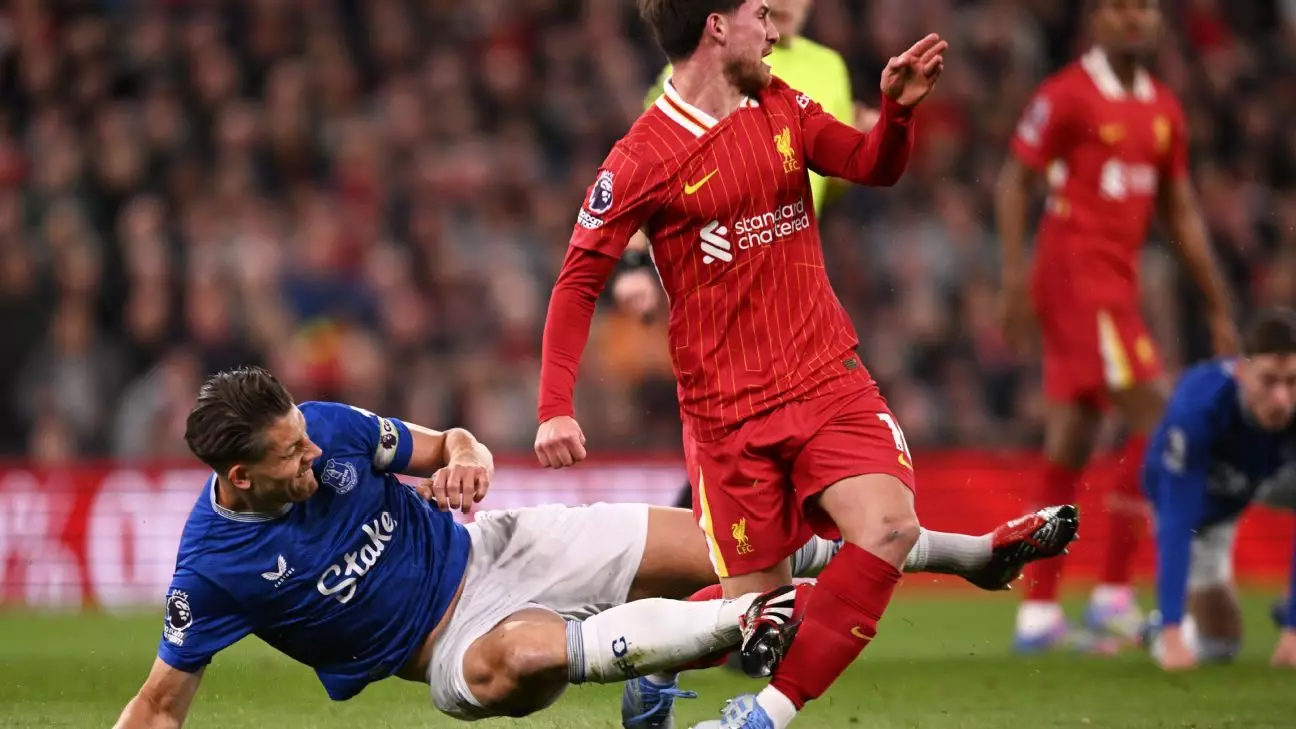In a tightly contested Merseyside derby, where Liverpool outmaneuvered Everton with a solitary goal from Diogo Jota, the match exposed the lingering tensions between fierce local rivals. Yet, overshadowing the game’s thrilling moments was a controversial incident involving Everton’s James Tarkowski and Liverpool’s Alexis Mac Allister. Although Liverpool secured the win, discussions swirled around the decision by referee Sam Barrett not to issue a red card for Tarkowski’s high tackle. This incident stands as a testament to the emotions that run high in such rivalries, and it raises questions about the integrity of officiating in high-stakes matches.
Liverpool’s head coach, Arne Slot, revealed his apathy towards the uproar surrounding Tarkowski’s non-red card. His statement, “I don’t want to comment about the situation because so many people already commented on that,” suggests an acceptance of the circumstances that unfolded during the match, rather than a frustration with the refereeing. It points to a broader narrative within the sport where questionable calls become common fodder for debate and dissent among fans and pundits alike—raising concerns about the standard of officiating that seems to fluctuate, depending on the match or location.
Diogo Jota: Redemption and Team Spirit
In stark contrast to the referee controversy, Diogo Jota’s performance paints a picture of individual triumph amidst strife. Having gone a frustrating ten games without finding the back of the net, his eventual goal against Everton was a significant moment not just for him but for the entire Liverpool squad. In Slot’s commendation of Jota, we see the importance of resilience and collective morale in professional football. Jota’s determination to reclaim his form exemplifies the spirit of fluctuation that every athlete must endure; the highs, the lows, and the unyielding pursuit of excellence.
Slot’s praise of not only Jota’s effort but also the team’s defensive resolve reflects the harmony in their play, further committing to a style that thrives on teamwork. For a coach, having a player of Jota’s caliber break through the mental barrier of a goal drought must be a rhythmic sigh of relief. It injects positivity into the squad, building confidence in the face of challenges and fortifying relationships amongst team members and their fan base.
The Offside Debate: Moyes’ Frustration
Meanwhile, on the other side of the pitch, Everton’s manager, David Moyes, vigorously sought to vocalize his discontent regarding the match officiating, particularly concerning a perceived offside by Luis Díaz that he claimed contributed to Jota’s goal. Moyes’ insistence on the clarity of the offside rule highlights the growing transparency and scrutiny that referees face, especially with the technology of VAR intended to correct errors. His frustration showcases how pivotal moments can drastically alter the trajectory of a team’s season, stirring feelings of injustice that fans rally around.
The overarching narrative arising from the Merseyside derby extends beyond the game itself; it delves deep into the biometrics of rivalry, the psychological struggle of athletes, and the contentious territory of officiating. As debates rage on about the integrity of decisions made on the pitch, one thing remains clear: the emotional tapestry of football continues to weave dramatic stories that echo beyond the final whistle.

